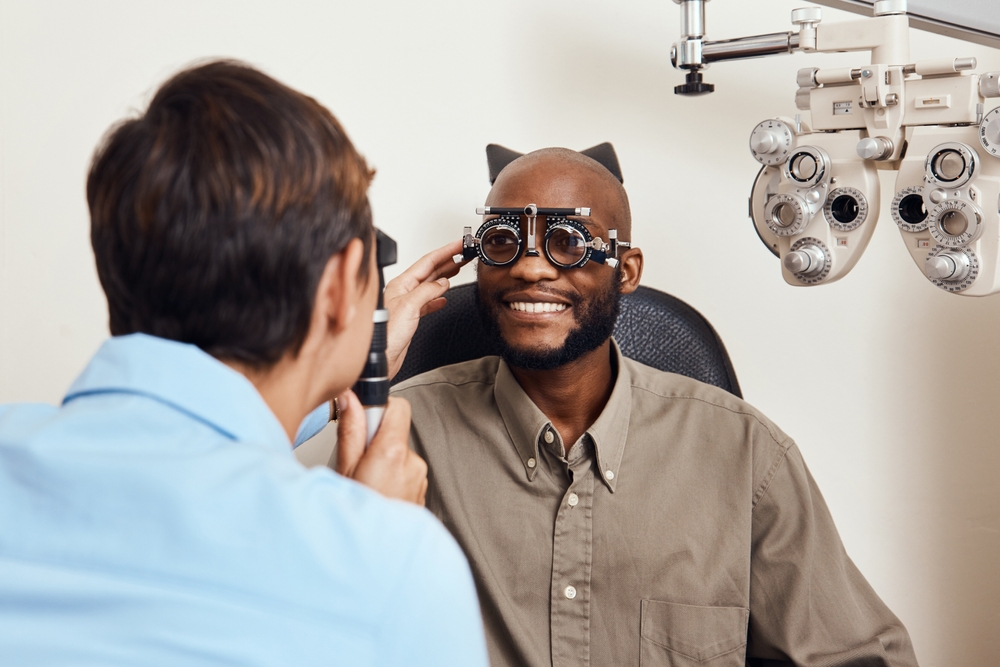
Determining what tests and procedures your insurance will cover during an eye exam can be confusing. You might not discover that it doesn’t cover a test like refraction until you receive an unexpected bill. Keep reading to find out if insurance covers tests like refraction during an eye exam!
What is Refraction?
Refraction is a test performed during a routine eye exam that measures how clearly you can see and whether you may need visual aids. This test uses the Snellen Eye Chart, which contains a row of letters, numbers, and symbols.
The eye doctor will use different lenses in front of your eye and ask, “what is better: one or two?” Your ophthalmologist will ask you to read each row from top to bottom. The last row you can see clearly determines the strength of your vision: 20/20, 20/40, etc. Each eye is tested separately.
What Kind of Insurance Plan Do You Have?
Whether or not refraction is covered often depends on the type of insurance plan you have. The two kinds of insurance plans you might use for eye care are medical insurance or a vision plan.
Medical Insurance Plans
If you only have a medical insurance plan, including Medicare, this might not cover refraction. The insurance company may consider it routine eye care rather than a medical procedure.
Medical insurance plans usually cover diagnosing and treating eye conditions they designate as health-related. These conditions can include cataracts, dry eye syndrome, and glaucoma.
If you seek care for one of these conditions, your medical insurance plan or Medicare might cover what they consider the medical part of an eye exam. The medical part of an exam could include specific diagnostic tests for these conditions, like a dilated eye exam or a tonometry test.
Vision Plans
Vision plans are usually purchased in addition to medical insurance and typically cover routine eye care and the costs of corrective visual aids. If you have a separate vision plan, refraction is just one of the tests covered in a routine eye exam.
Along with refraction, the following tests performed during an eye exam are usually covered by a vision plan:
Visual Field Test
During a visual field test, your eye doctor has you focus on an object right before you. They will then move this object from one side of your field of vision to the other, asking whether you can still see the object.
This test assesses your peripheral vision.
Slit Lamp Exam
During a slit lamp exam, your ophthalmologist will use a bright light and a small microscope to examine the structures within your eyes. After dilating your eyes, they may perform this exam to check for signs of more serious eye conditions like cataracts, glaucoma, and macular degeneration.
Tonometry
During tonometry, a device called a tonometer blows a puff of air onto the surface of your eye. Tonometry is not always performed with a puff of air and may instead be done with an instrument that touches the front surface of your eye, which is a method called applanation.
Tonometry measures the level of pressure in your eye. High pressure levels within your eye can indicate certain eye conditions that can seriously impair vision.
The best way to know precisely what will be covered at your next comprehensive eye exam is to check with your insurance provider before your appointment.
Do you need an eye exam? Schedule yours at Fichte, Endl & Elmer Eyecare in Buffalo, NY, by calling us at 1-800-309-2020 today!



